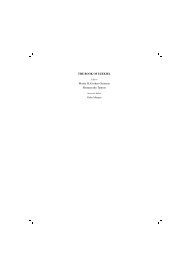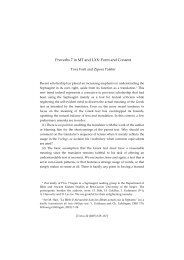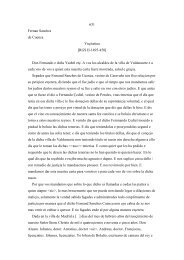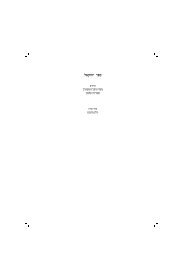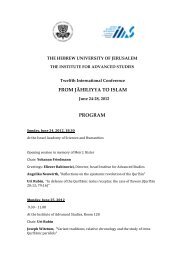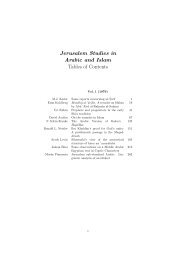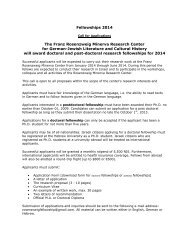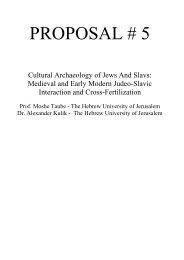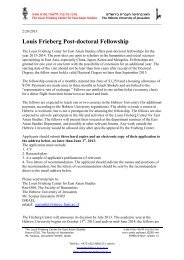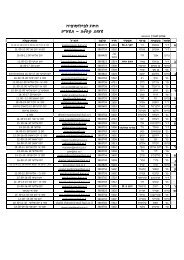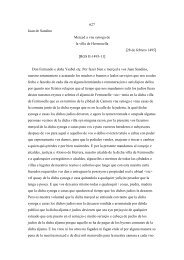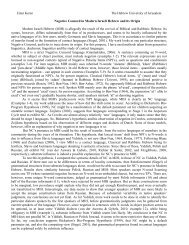Baber Johansen
Baber Johansen
Baber Johansen
You also want an ePaper? Increase the reach of your titles
YUMPU automatically turns print PDFs into web optimized ePapers that Google loves.
9<br />
therefore, superior as a common standard to the orders of a ruler that may<br />
lose their validity at his death. The fiqh, thus, guarantees the historical<br />
continuity of the normative standards and through it, the normative<br />
identity of the community. This position was already taken by ShÁfiÝÐ<br />
when he underlined that the community is not a physical or social unit,<br />
but a normative entity that exists in the rules on which it agrees. 37<br />
Thirdly, pace Joseph Schacht, through its norms, fiqh distinguishes<br />
between fields of social action or spheres of the law. It creates and<br />
enforces distinctions between social sub-systems and draws the limits<br />
between them. The summa divisio of fiqh separates the cult (ÝibÁdÁt) from<br />
the legal transactions between particulars (muÝÁmalÁt). Within this<br />
second field, fiqh clearly distinguishes between the social contexts of<br />
legal acts. The norms for the exchange of goods and services cannot be<br />
applied to the field of family and marriage. The husband cannot sell or<br />
lease his wife, in spite of the fact that he owns "the property of the<br />
marital bond" (milk ÝiÒmat al-nikÁÎ). Parties to a trial are not allowed to<br />
make donations to the judge, in spite of the fact that in other social<br />
contexts to make gifts and donations is a recommended and licit part of<br />
social life. Casuistry determines the limits within which a norm applies.<br />
The fiqh thus construes fields of legal acts, distinguished from each other<br />
through specific sets of norms. 38 Together, these different legal spheres<br />
form a normative way of life. This way of life is religiously legitimized<br />
through the fact that the norms that regulate and reproduce it are derived<br />
from the revealed texts by way of interpretation. Fiqh—through the<br />
normative reproduction of this way of life—depicts the Muslim<br />
community as the permanent representative of Islam in history, the<br />
historical subject of Islam. This dimension of the religious community<br />
can be upheld only if its individual members to whom God’s law is<br />
addressed (al-mukhÁÔabÙn) respond to its appeal.<br />
Fourthly, fiqh, while assigning an important place to the cosmic<br />
dimension of religion in the field of the cult (ÝibÁdÁt), does not place it in<br />
the center of the field of legal transactions between private actors<br />
(muÝÁmalÁt). It focuses on human acts and their legal and religious



